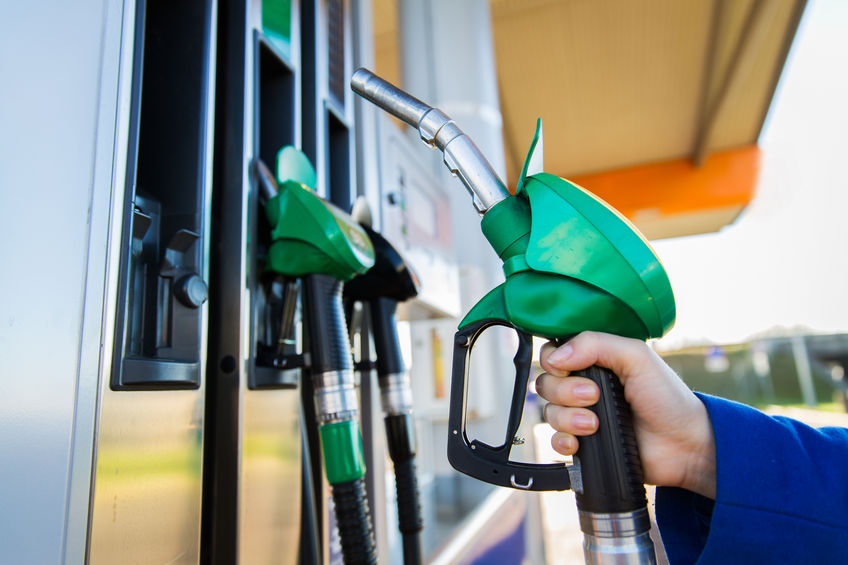 When choosing the right bus to purchase for your organization, public transportation fleet, school district, conversion, or other use, there is a wide range of vehicle options for you to consider. You want to invest in the bus that best fits your needs, budget, and long-term goals.
When choosing the right bus to purchase for your organization, public transportation fleet, school district, conversion, or other use, there is a wide range of vehicle options for you to consider. You want to invest in the bus that best fits your needs, budget, and long-term goals.
One of the factors you’ll need to consider as you’re narrowing down the buses that fulfill your requirements is what type of engine you want to power your vehicle—a choice that primarily comes down to either gas or diesel.
There are pros and cons to both gas and diesel bus engines that you should evaluate before making your decision. Let’s take a look at how they compare on several important points!
Comparing Power
Gas and diesel engines have different types of power. The kind that will work best for you depends on how you plan to use your bus. Gas engines have higher horsepower, while diesel engines have higher torque. Essentially, this means that gas engines have greater power for a shorter amount of time, but diesel has greater towing capacity and pulling power for longer. This makes diesel-fueled engines ideal for buses pulling heavier loads for extended mileage or vehicles operating in hilly terrain.
Comparing Fuel Efficiency
A diesel engine requires less fuel to produce the same output as a gas engine. A conventional gas engine operates via a spark ignition system, which burns more fuel than a diesel engine’s combustion system. As a result, diesel buses are more fuel-efficient per gallon and burn less fuel while idling. The diesel engine’s fuel efficiency is a definite advantage for public transportation buses that make repeated stops or spend a lot of time in traffic.
Comparing Costs
When comparing the costs of a gas versus diesel-powered bus, you need to consider both the short-term and long-term expenses to truly gauge which will be the most cost-efficient in the long run. For example, the upfront costs of a vehicle with a diesel engine are typically several thousand dollars higher than a gas engine. Diesel fuel is also more expensive per gallon than unleaded gas. However, because diesel is more fuel-efficient, it is also cheaper per mile. So, if you plan to put a lot of miles on your bus—the threshold is usually about 30,000 miles per year—the economic fuel efficiency will make up for the higher initial price tag. Also, keep in mind that diesel engines are more durable than their gas counterparts, meaning fewer repair costs over time.
Comparing Maintenance & Longevity
Because of their greater torque, heavy loads put less strain on diesel engines compared to gas. This means they typically retain higher quality for longer. Sturdier engine parts are used to build a diesel engine, making them more durable and giving them a longer lifespan. As a result, repair and maintenance work is usually required less frequently for diesel buses than for gas buses. Diesel parts and mechanics tend to be more expensive, so the repairs and maintenance you need will cost more out of pocket, but it will still be less costly over time compared to gas engines.
Comparing Environmental Impact
In the past, gas engines were considered more environmentally friendly than diesel, but that distinction has faded with recent advancements. Since the EPA implemented stringent fuel emissions standards, particularly with updates for heavy-duty vehicles set for 2027, modern diesel engines have become comparable to gas engines in terms of environmental impact. Diesel engines now feature advanced emission controls like selective catalytic reduction (SCR) and diesel particulate filters (DPFs), which reduce harmful pollutants such as nitrogen oxides (NOx) and particulate matter. For vehicles covering longer distances, diesel can even be the more eco-friendly option due to its higher fuel efficiency, leading to lower CO₂ emissions per mile compared to gasoline.
At Las Vegas Bus Sales, our inventory of new and used buses includes gas and diesel-fueled models to meet various customer needs. You can filter your search by fuel type and other convenient parameters on our website, such as ADA compliance, storage space, passenger capacity, and more, to find your perfect bus that much quicker!
For more information about the different types of buses we have available, call us at (877)456-9804 today.
